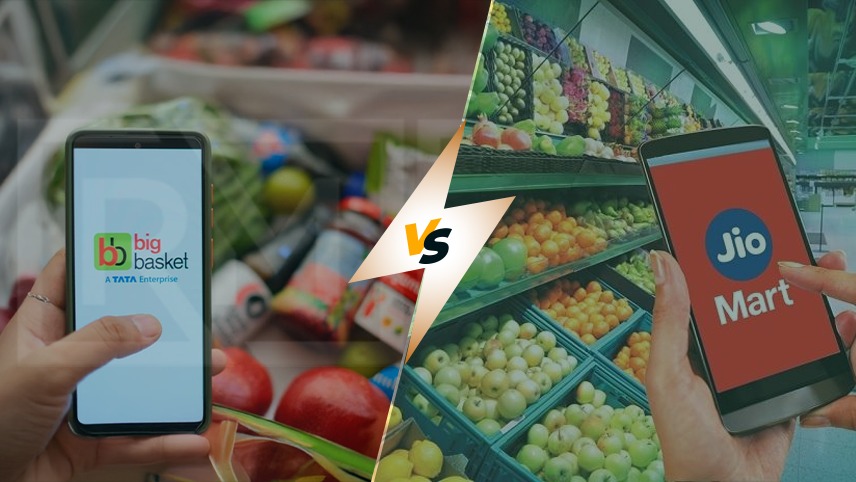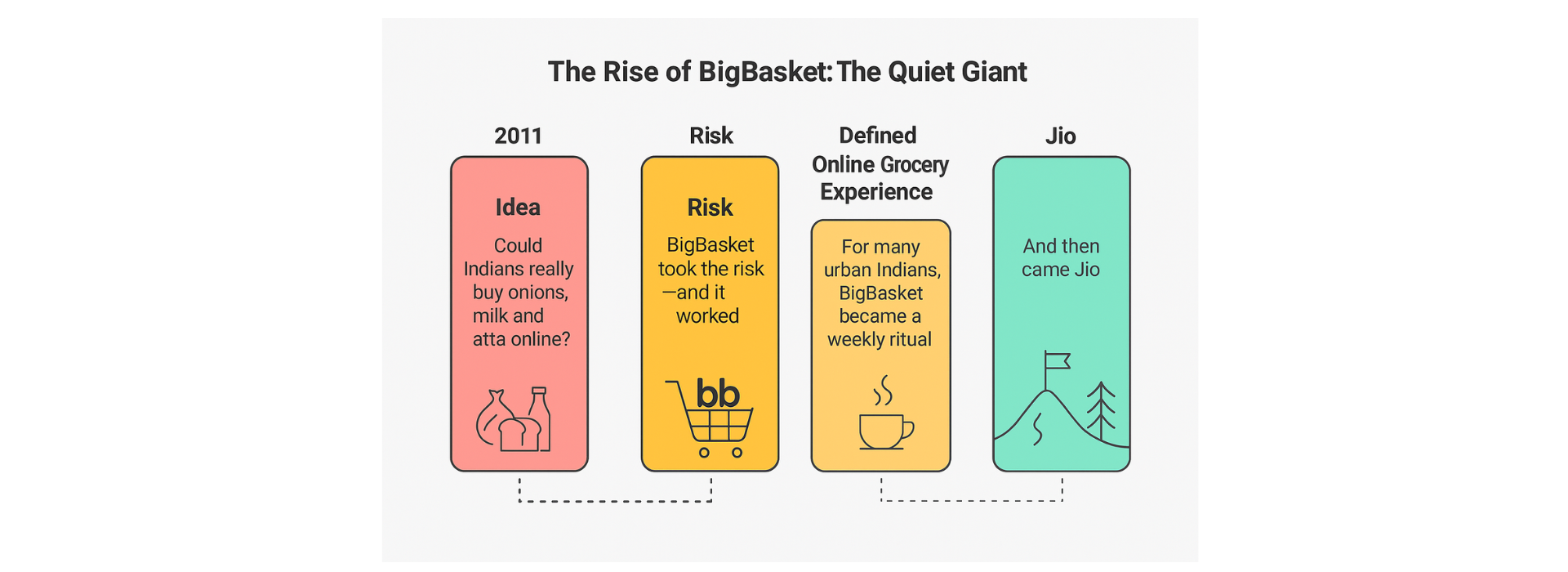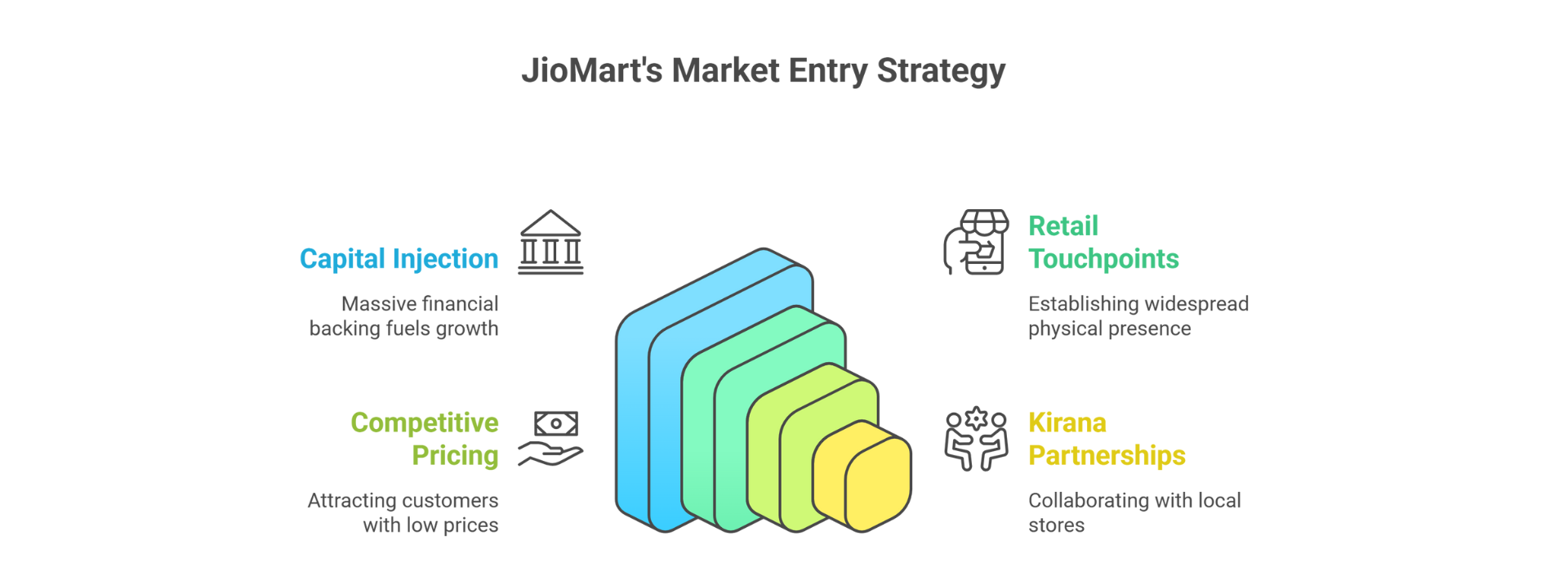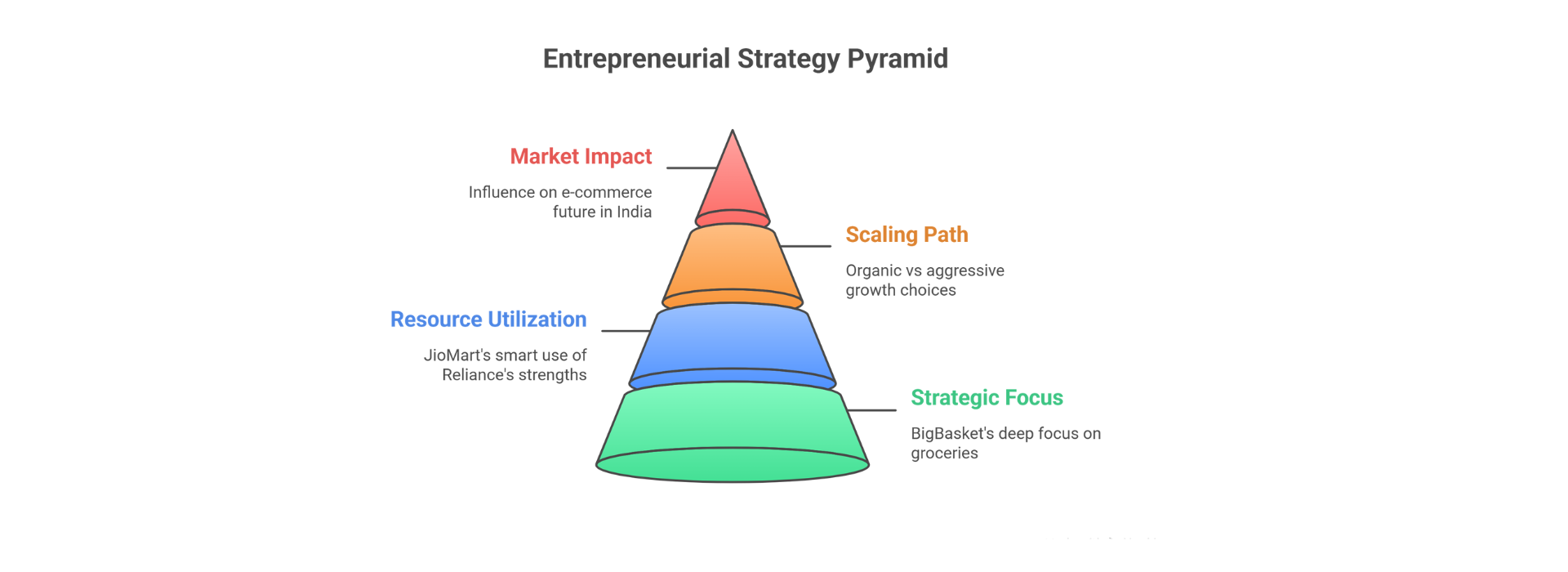
BigBasket vs JioMart: Who’s Winning the Online Grocery War in India?
There’s a war happening in your kitchen. You may not feel it when you sip your tea or scroll Instagram after dinner, but the battle lines are drawn and it’s being fought between BigBasket and JioMart. This is not just another business rivalry. This is a war for your home’s most regular, essential, and emotional purchases: groceries.
For Indian entrepreneurs and business minds watching closely, this online grocery war in India isn’t just exciting, it's deeply educational. It’s a front-row seat to one of the most critical business showdowns of our time. But who’s really winning? And what can you, as a business owner or aspiring founder, learn from this battlefield?
Let’s unpack the drama. Because this isn’t about vegetables. It’s about vision.
The Rise of BigBasket: The Quiet Giant
Back in 2011, BigBasket was just an idea, a simple but daring one. Could Indians really buy onions, milk, and atta online? At the time, the answer seemed shaky, maybe. Logistics was a nightmare. Margins were thin. And internet shopping wasn't a daily habit yet.
But BigBasket took the risk. And it worked. Slowly, silently, it built a customer base of loyal users who didn’t want to deal with traffic, bargaining, or wet markets. It wasn’t loud. It didn’t scream discounts. It just focused on solving one deep problem: convenient grocery delivery with quality assurance.
Over time, the brand came to define the online grocery experience. For many urban Indians, BigBasket became a weekly ritual, just like their chai breaks.
And then came Jio.

JioMart Enters: Disruption Reloaded
Suddenly, the room feels different, like something important just walked in. That’s what happened when JioMart entered the scene in 2020.
Backed by Reliance, India’s most formidable business empire, JioMart didn’t just want a piece of the pie. It wanted the whole thali.
With massive capital, thousands of retail touchpoints, and prices that turned heads, Reliance came in strong. And with the Reliance Jio ecosystem already embedded in millions of homes, the JioMart business model had a built-in launchpad most startups would kill for.
Within months, it was everywhere across thousands of pincodes. It partnered with local kirana stores. It promised “desh ki nayi dukaan,” India’s new shop. Suddenly, the online grocery war was not just about tech. It was about scale, strategy, and sheer power.

Speed vs Scale: The Core Battle
The real clash between BigBasket's business model and JioMart's business model is not just about who sells more rice packets. It’s about what kind of business model India trusts.
The BigBasket Business model relies on tight operations. It runs on a strong backbone of warehouses, dark stores, and a delivery fleet built for speed and freshness. Its core pitch? Trust us, we’ll deliver quality.
Jio Mart Business plan is built on selling more at lower profits. With Reliance’s backing, it focuses on price leadership. It integrates online orders with offline supply, using local shops to fulfill demand.
So the question is, what wins in India? Speed with service, or price with power?
That’s what makes this fight so fascinating. Both are right. And both have flaws.
Who’s Ahead Today?
If we look purely at reach, JioMart's Business strategy is exploding. It’s reaching towns, but BigBasket's business strategy still doesn’t work. Its tie-ups with kirana stores have unlocked a hybrid model that makes it hard to beat in Tier 2 and Tier 3 cities.
But in metros, BigBasket continues to dominate. Its brand loyalty is strong. It offers a cleaner app experience, better return policies, and a wider selection of niche products, especially in fresh foods.
Interestingly, Tata’s acquisition of BigBasket in 2021 gave it the kind of corporate muscle it earlier lacked. With Tata Neu and other ecosystem integrations, BigBasket is slowly reinventing itself. It now offers quick commerce via BB Now, competes with Dunzo and Blinkit, and is doubling down on delivery speed.
So while JioMart's business plan may have the upper hand in expansion, BigBasket’s brand equity remains rock solid in its strongholds.
The Emotional Game: Trust vs Temptation
At the heart of groceries lies emotion. This isn’t like buying a phone. It’s about what you eat, what you feed your children, and what smells fill your kitchen.
BigBasket bets on this emotional equation. Its positioning is quiet and trustworthy. It doesn’t overwhelm you with flashy offers. It wins your heart with consistency.
JioMart's Business model, in contrast, triggers temptation. Heavy discounts. Flash sales.And the silent power of a giant brand driving it from behind.
Which one sticks in the long run? That’s the billion-rupee question.
And that’s exactly what Indian business owners need to study. Whether you're running a D2C brand or a small retail outlet, the psychology of customer loyalty vs price-driven attraction will define your future.
What Makes This War So Different?
This isn’t Flipkart vs Amazon. It’s not just about who has the better algorithm or larger warehouse.
This is hyperlocal. Emotion-driven. Daily-need commerce.
In India, where trust takes time to build and personal touch still matters, the online grocery war is not being won on technology alone. It’s being won in homes. In kitchens. In those few seconds when a housewife or working professional decides, “Let me order from here.”
And this is where BigBasket’s years of familiarity still count. JioMart’s tie-up with local kiranas adds a layer of trust, blending neighbourhood familiarity with corporate power.
What You Can Learn as an Entrepreneur
Let’s forget groceries for a second. Think strategy.
BigBasket's Business strategy shows the power of deep focus. It built one category. And it built it well. No distractions. Just groceries. For a decade.
JioMart Business Strategy, on the other side, proves how smart use of resources can create a big impact. It quickly entered the market by using Reliance’s strengths in telecom, retail, and delivery.
As a founder, which path do you want to take?
Do you go deep like the BigBasket business model, perfect one problem, and slowly grow? Or do you go wide like the JioMart business model, using partnerships, capital, and ecosystem synergies?
There’s no wrong answer. But there is a lack of clarity.
Watching this war unfold gives every Indian entrepreneur a chance to reflect on how they want to scale. Organically or aggressively? Niche or mass?
The choices these brands make in acquisition, loyalty programs, and delivery speed are clues to the future of e-commerce in India.

The Challenges Ahead
Both companies have a long road ahead. For BigBasket, the challenge is to innovate fast without losing its old soul. Quick commerce is a tricky game, and new players like Zepto are already shaking things up.
For JioMart, the real test is customer experience. People may come for the discounts. But will they stay for the service? Can it go beyond reach and build genuine affection?
Also, regulations are tightening. Profitability is in question. And Indian consumers, while price-sensitive, are also increasingly demanding.
The online grocery war in India is not over. It’s just getting started.
So, Who’s Winning?
Let’s be honest right now, no one has truly won. The BigBasket business model vs the JioMart business model is not a game with a clear scoreboard. It’s a test of long-term staying power.
BigBasket's business plan is winning in metros, in minds, in quality.
The JioMart business plan is winning in scale, in reach, in ambition.
The real winner will be the one who blends heart and hustle. That builds operations without losing soul. That earns not just transactions, but trust.
And if you’re an Indian entrepreneur reading this, know that studying this war is like getting an MBA in real-time, Indian-style. Because everything from customer psychology to logistics, pricing to positioning, plays out daily between these two giants.
The Takeaway: Watch Closely, Learn Boldly
If you're an Indian Entrepreneur, you don’t need to sell dal and chawal to learn from this. You could be building a tech startup or a personal brand. But the core lessons remain universal:
Know your customer. Be consistent. Don’t chase everything. And when a Goliath like Jio enters your space, don’t panic.
BigBasket vs JioMart is not just a headline. It’s a classroom. It’s a mirror. And it’s a stage where the future of Indian e-commerce is being written one grocery order at a time.
So next time you order that packet of milk, pause for a second.
Look at where it came from.
And remember you’re not just a customer.
You’re part of the war.
1. What is the main difference between BigBasket and JioMart?
The key difference lies in their business models. BigBasket focuses on a curated, quality-driven online grocery experience with its own warehouses and delivery fleet. JioMart, on the other hand, integrates with local kirana stores and leverages Reliance’s retail network for rapid expansion and lower prices.
2. Which is better: BigBasket's business strategy or JioMart business strategy for online grocery shopping?
It depends on what you're looking for. If you want quality, reliability, and a smooth user experience, BigBasket stands out. If you’re looking for better prices and fast delivery across more pin codes, JioMart might be the better choice.
3. Who owns BigBasket and JioMart?
BigBasket is owned by the Tata Group through Tata Digital. JioMart is a venture by Reliance Retail, which is a subsidiary of Reliance Industries Limited, led by Mukesh Ambani.
4. Is JioMart cheaper than BigBasket?
Yes, in most cases, JioMart offers more aggressive pricing and discounts because of its massive scale and partnerships with local stores. However, BigBasket often wins in quality and packaging.
5. How do BigBasket and JioMart deliver groceries?
BigBasket uses its own inventory and delivery network for most orders. JioMart often routes deliveries through local kirana stores or nearby Reliance outlets, especially in smaller towns.
6. Which app is more user-friendly: BigBasket or JioMart?
Many users find the BigBasket app more polished and easy to navigate, especially for browsing product categories and managing subscriptions. JioMart is improving fast but may feel a bit basic in some areas.
7. Who is winning the online grocery war in India right now?
There’s no clear winner yet. BigBasket leads in metros with a loyal customer base and better service. JioMart is winning in reach, price, and scale, especially in Tier 2 and Tier 3 cities. The online grocery war in India is still very much alive and evolving every day.
- Ecommerce business model
- Businessman
- Business Case study






